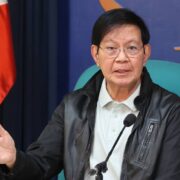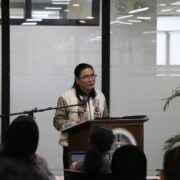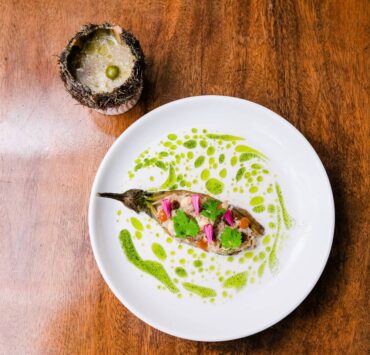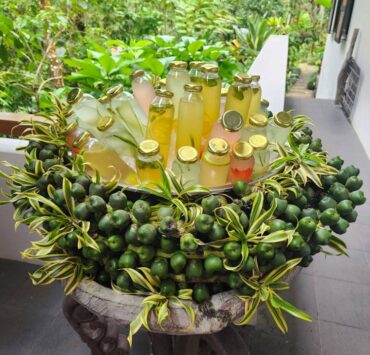Filipino vegan cookbook wins Gintong Aklat Award
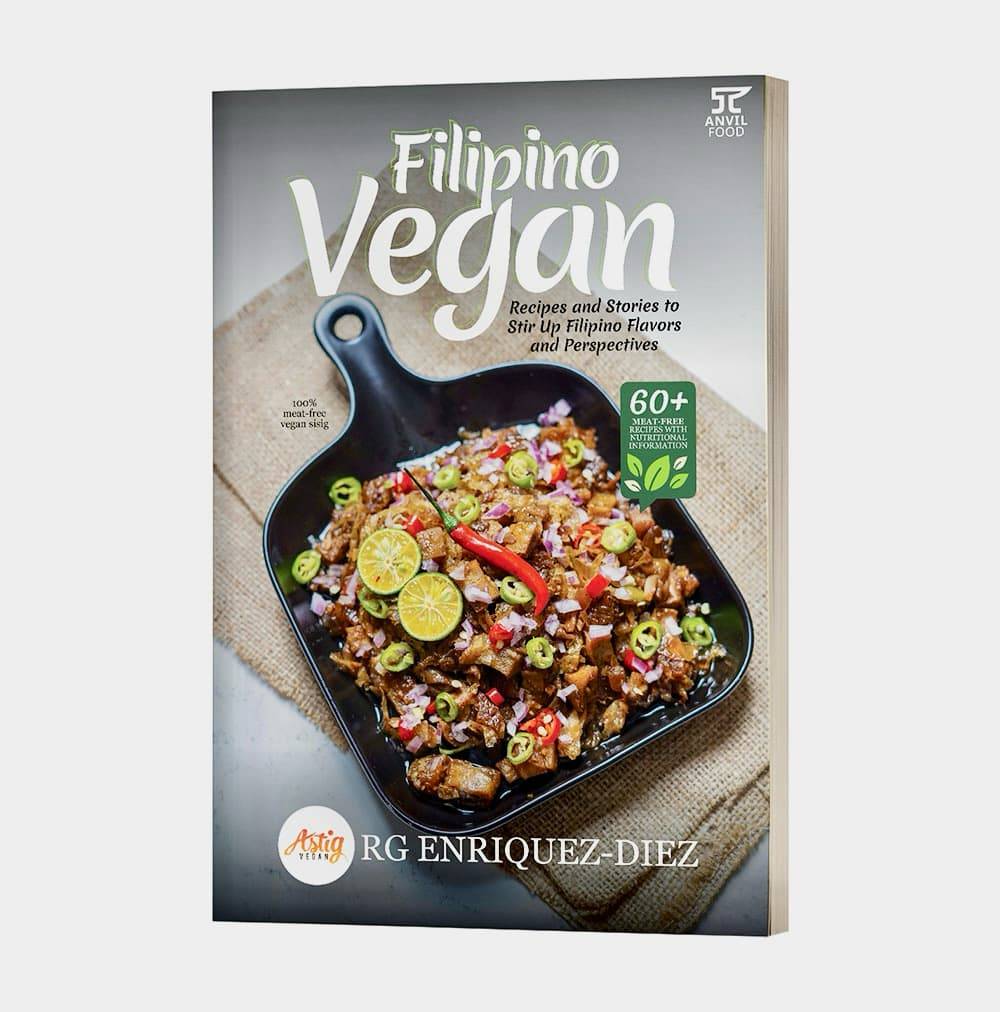
Etched in Filipino food history, a vegan book was once considered, selected and recognized by some of the best historians, experts and scholars of Filipino food in the Philippines. It’s one of the best validations a vegan cook can wish for, as validating as a favorite lola loving the vegan dish you made,” said Richgail “RG” Enriquez-Diez, cookbook author of “Filipino Vegan” and content creator behind Astig Vegan (astigvegan.com).
With over 40,000 subscribers on YouTube, Enriquez-Diez’s cookbook “Filipino Vegan,” published by Anvil Publishing, won Best Book on Food at this year’s Gintong Aklat Awards by the Book Development Association of the Philippines.
Enriquez-Diez has no illusions about the Philippines going vegan. She knows that most Filipinos still see meat as a necessity and a treat. “But I’m glad that even though I swung at the wall and it did not crumble, I made a tiny crack. Hopefully, with millions of tiny cracks, more Filipinos will be open to trying plant-based food and vegan ways.”
Her goal in coming out with the book was to show Filipinos in the Philippines that going vegan doesn’t have to be “foreign, expensive or inaccessible.”
The book includes recipes along with essays and stories about veganism and her own vegan journey. “I was hoping people would find the book easy to use and understand,” she said.
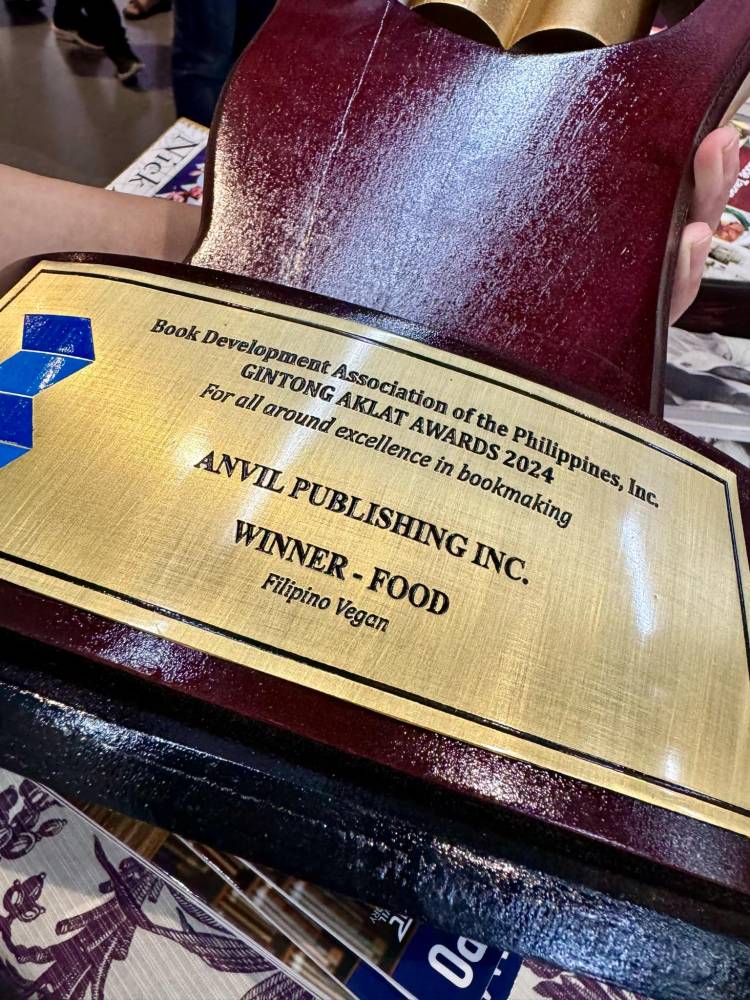
Initially, she wanted a beautiful coffee table book; heavy, with photos and over 100 recipes. But doing so would mean the book’s price would go up, too. If she were to prove that going vegan doesn’t have to be expensive, the book itself should not be pricey.
Mom’s cooking
So, she accepted that each recipe wouldn’t have a full-page picture. “Filipino Vegan” retails at P350. Her husband suggested putting QR codes so people can at least scan for the photos. They had a glitch, but they had them fixed for the next printing round.
Enriquez-Diez and her family migrated to the United States because her grandmother petitioned them. “As a homesick 15-year-old, the one thing that reminded me of home was my mom’s cooking. So, when I turned vegan during college more than 18 years ago, I didn’t want to give up the food of my childhood and heritage. I studied my mother’s cooking, and with her supervision, I created vegan versions of our beloved Filipino dishes. Eventually, I took up a plant-based culinary course and moved back to the Philippines to study Filipino food further and branch out from family recipes,” she said.
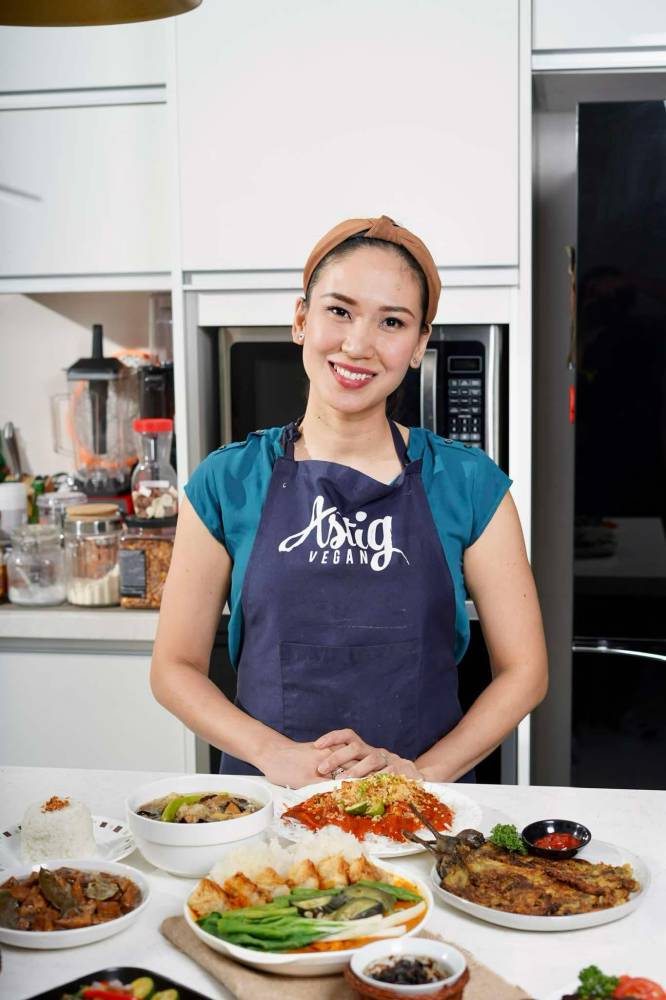
Adobo is her favorite no-fail, for-kitchen-dummies recipe from “Filipino Vegan” that she would encourage newbies to try.
She mentioned some naturally or accidentally vegan Filipino dishes: “Most Filipino sweet treats were originally vegan, especially because we have more coconut trees than cattle in the Philippines.”
For example, ginataang bilo-bilo and other varieties of ginataan like totong, mais and halo-halo, biko, pichi-pichi, palitaw, kutsinta, suman (malagkit, budbud and balinghoy), as well street foods like binatog, taho, nilagang mani, adobong mani, nilagang mais, karioka, turon, banana cue, kamote cue and more. For savory dishes, there are easily veganizable ones, like laing, adobong kangkong, adobong sitaw, ginataang kalabasa at sitaw, munggo guisado, gising-gising, sinantolan, laswa, pinakbet, ginisang sayote, ginisang pechay (and other varieties of gisa), ensaladang talong, ensaladang langka and others.
Veganizing recipes
Enriquez-Diez shared some tips on how to easily veganize family recipes. “Start with the simplest dish you’d like to veganize. Go online and find vegan recipes for that dish. Explore your favorite grocery or palengke for inspiration and vegan finds. Batch cook so you don’t have to cook often (unless you want to). If you prefer not to cook, find your neighborhood’s vegan restaurant or restaurant with vegan options.”
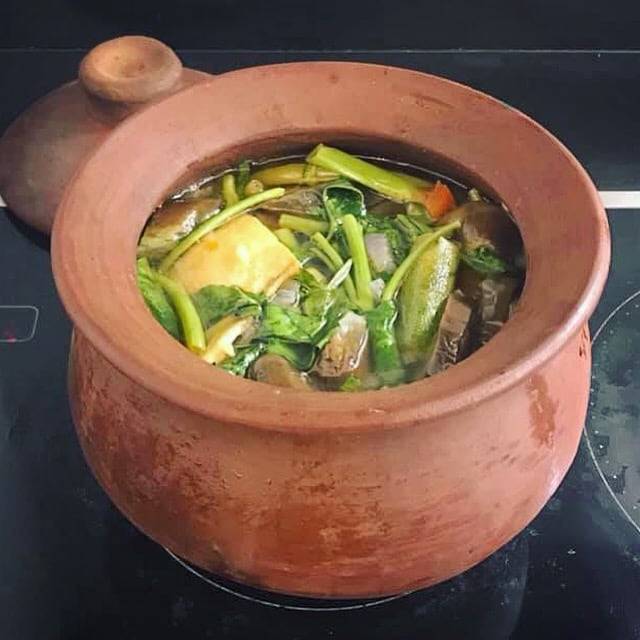
She encouraged the veg-curious or skeptical readers. “As a kid, I never liked vegetables. Worse, I used to take photos of a cut-off lechon head, thinking it was funny. In other words, I was the least likely candidate for going vegan. Fast-forward to a nutrition class and some mindful eating, I’m now a vegan for more than 18 years and have even written a book on Filipino veganism.”
She added, “Sometimes, it’s easy to dismiss something as ‘not for me.’ But with an open mind and heart, we don’t have to stick to what we assign ourselves to be. We can grow, learn, even redefine ourselves. And it can start with how we see the world, how we treat others and how and what we eat.”
To the vegan community, she said, “This is our victory! May this award fill us with love, hope and encouragement. We made history!”




